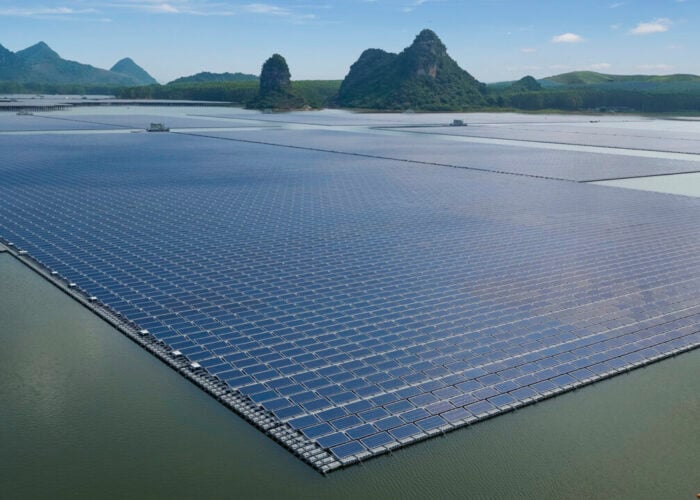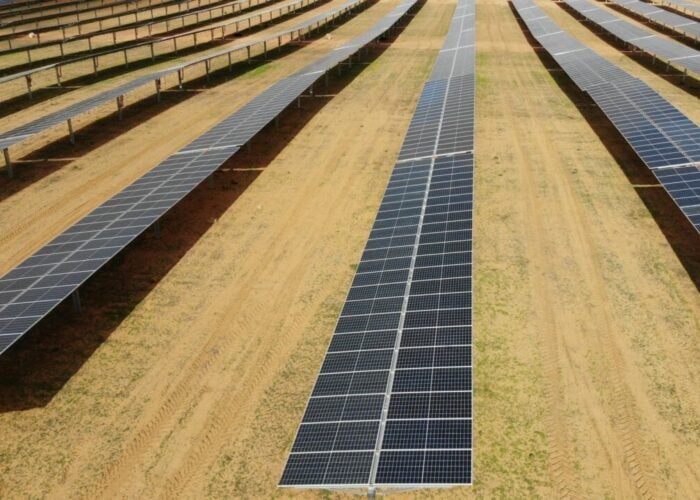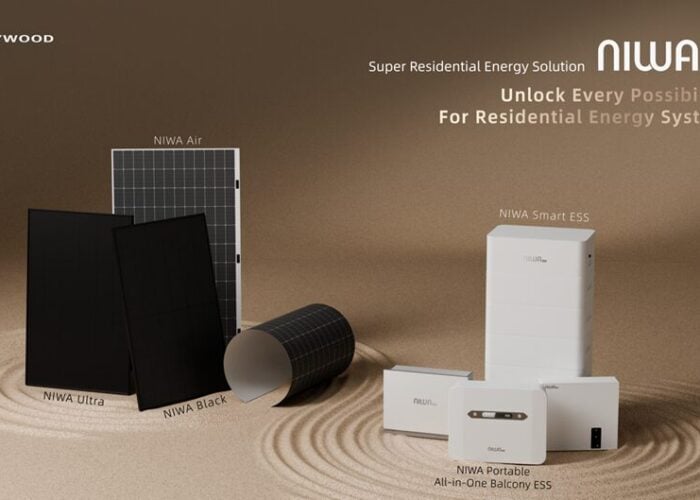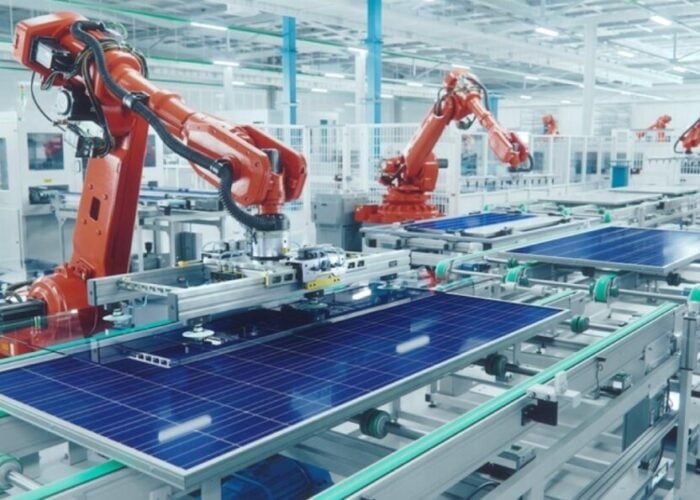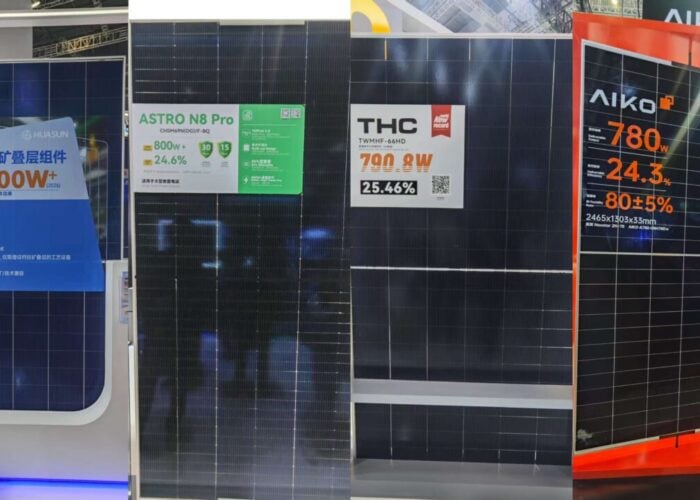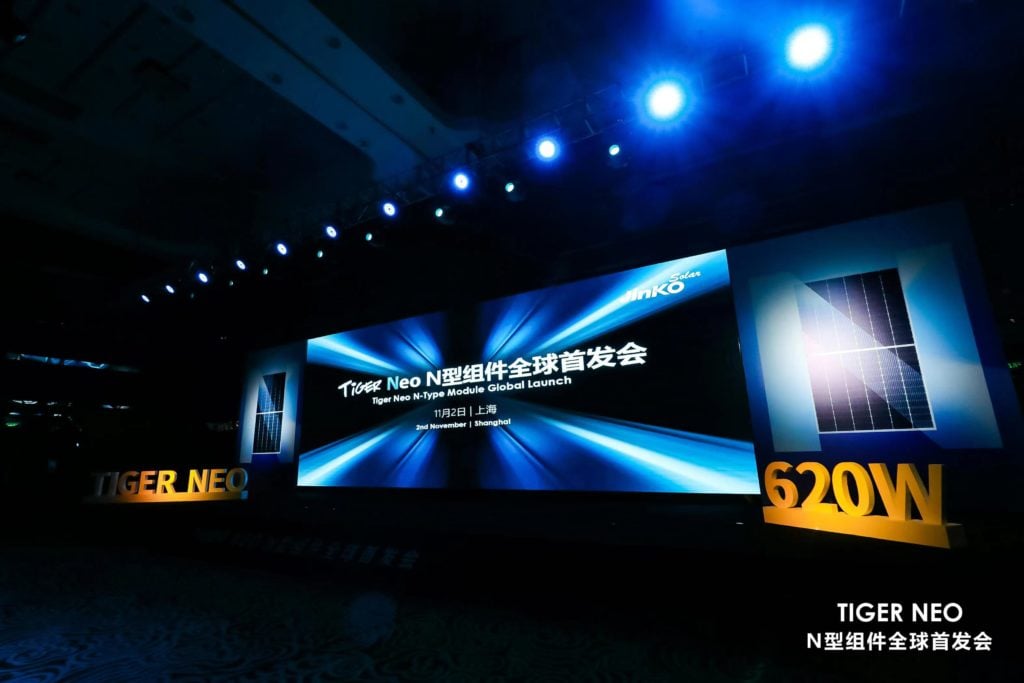
JinkoSolar has launched its new series of ultra-efficient, n-type PV modules, dubbed the Tiger Neo.
The new series adopts n-type tunnel-oxide passivated contact (TOPCon) technology to deliver enhancements in performance, power, energy density and reliability, with a maximum power output of up to 620W in mass production, and conversion efficiency of up to 22.3%.
Unlock unlimited access for 12 whole months of distinctive global analysis
Photovoltaics International is now included.
- Regular insight and analysis of the industry’s biggest developments
- In-depth interviews with the industry’s leading figures
- Unlimited digital access to the PV Tech Power journal catalogue
- Unlimited digital access to the Photovoltaics International journal catalogue
- Access to more than 1,000 technical papers
- Discounts on Solar Media’s portfolio of events, in-person and virtual
JinkoSolar’s n-type TOPCon technology provides about 5 – 6% more efficiency than mono PERC and between 3 – 4% more energy generation.
The Tiger Neo uses 182mm wafers and includes multi-busbar and half-cut cell technologies to reduce internal resistance loss. Meanwhile, its circular solder strip design increases optical gain to boost efficiency.
The module boasts a bifacial factor of up to 85%, contributing towards an increase in energy yield of 5 – 15% compared to conventional p-type bifacial modules over its operational lifetime. Its higher bifacial factor also improves power generation capacity and efficiency.
JinkoSolar is to provide a 30-year linear power output guarantee for the Tiger Neo series, pointing to reduced LID and LeTID risks associated with n-type technologies. First-year degradation of the module is claimed to be less than 1%, while power output is guaranteed to be no less than 87.4% of the nominal power output after 30 years.
The Tiger Neo has a lower temperature coefficient of -0.30%/℃ compared with -0.35%/℃ for p-type modules, making it more durable in extreme and high-temperature environments, with its low-light performance and small irradiance angle also prolonging the module’s generation period during the day.
Combining the advantages of low-temperature coefficient, low degradation and high facial factor equates to an annual energy yield 3% higher than that of mainstream p-type bifacial modules, JinkoSolar says.
Kangping Chen, JinkoSolar’s CEO, commented: “The global PV market is entering a new era of energy generation at an unprecedented speed. The need to address different energy application scenarios and the urgency for government and various industries to accelerate energy transformation have pushed the demand for solar power to a new level. The new flagship Tiger Neo series has been designed to meet the needs of large-scale utility, industrial and commercial distributed generation and residential applications.
“Through the advantages of N-type TOPCon technology, customers can now invest in more efficient, more reliable and more profitable PV systems. We believe that Tiger Neo will continue to set new industry standards and further promote the development of the global solar industry, so that more people can enjoy a brighter future driven by clean energy solutions.”


